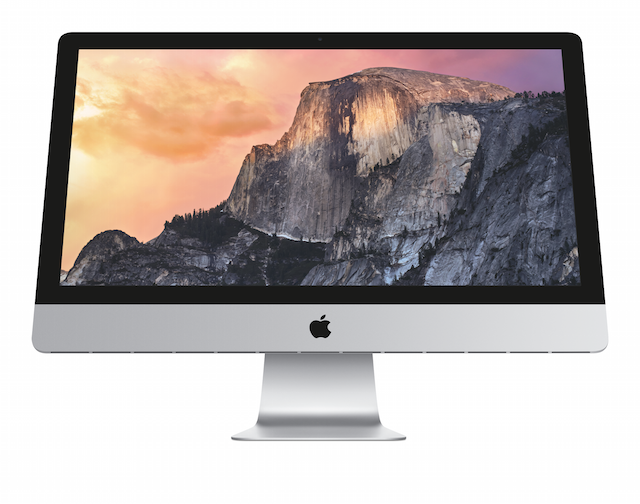
Apple refreshes 15-inch MacBook Pro, introduces cheaper 5K iMac
Apple has refreshed the 15-inch MacBook Pro with Retina display, beefing up its top-of-the-line laptop with a Force Touch trackpad, faster internal storage and dedicated graphics, and, of course, better battery life. Also new is a 27-inch iMac with Retina 5K display configuration which kicks off at $1,999, $300 cheaper than the original model.
But these are not the only changes that Apple has announced. The original 27-inch iMac with Retina 5K display now starts off at $200 less than before -- prior to this price-cut, it had been available from $2,499. Let us take a detailed look at what the new 15-inch MacBook Pro with Retina display brings to the table.
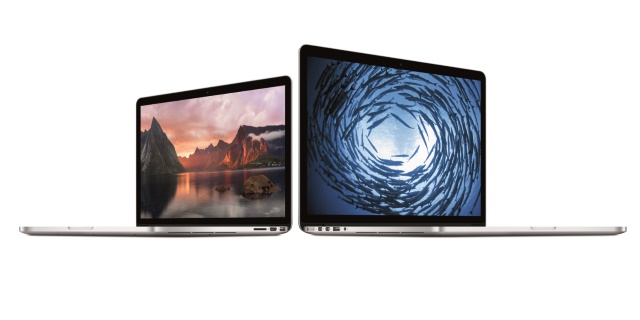
Apple refreshes MacBook Air and MacBook Pro range with speed boosts
If the Apple Watch and new MacBook were not enough, Apple had more hardware to reveal at today's launch event. In addition to the 'regular' MacBook (if such a word is really applicable), there was also the updated 13-inch MacBook Pro with Retina Display.
Key changes include the addition of a fifth generation Intel Core processor, improved battery life, and double-speed flash storage as well as the Force Touch trackpad. Updated 11-inch and 13-inch MacBook Airs were also unveiled, with the larger model gaining a fifth generation Intel Core processor, Intel HD Graphics 6000, Thunderbolt 2, and faster storage.
2015 is year of the Chromebook
Last year, I disputed ridiculous assertions, based on widely misquoted NPD data, that 2014 would be "year of the Chromebook". It wasn't. But that designation does belong to 2015—at least in the United States. Measures: Number of new models; adoption by K-12 schools; and overall sales, which are surprisingly strong. Read carefully the next paragraph.
Through U.S. commercial channels and retail, Chromebooks accounted for 14 percent of laptop sales last year, according to NPD, which released data at my request. That's up from 8 percent in 2013. Commercial channels, largely to educational institutions, accounted for about two-thirds of 2014 Chromebook sold. Year over year, sales soared by 85 percent, and the trajectory continues to climb.
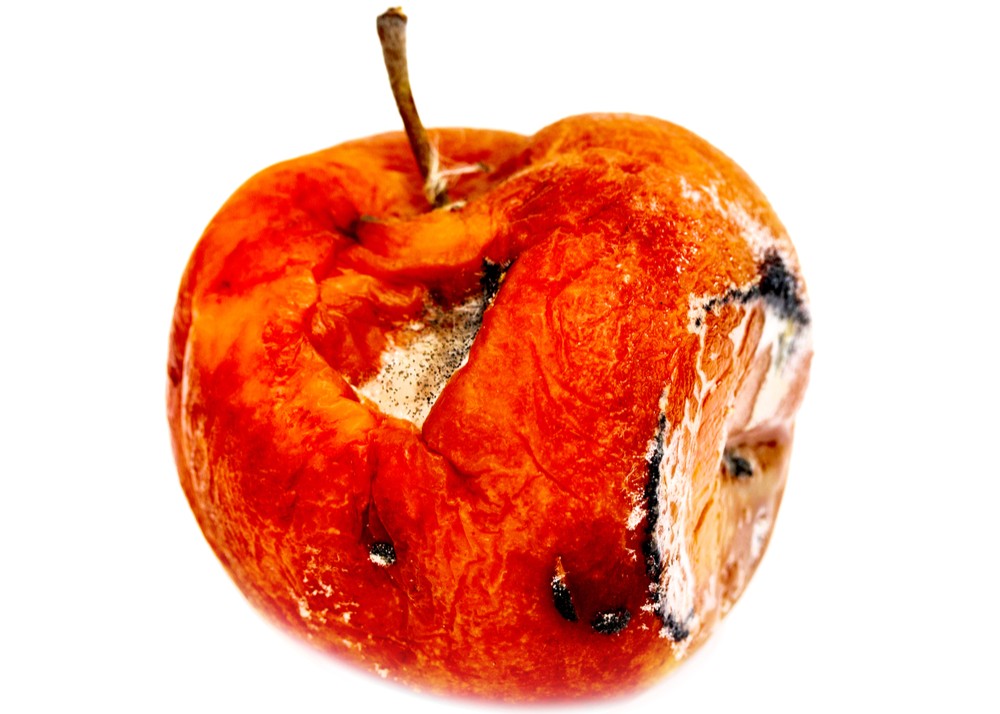
Sorry Apple, Dell's laptop is better -- Precision M3800 destroys MacBook Pro
Apple makes wonderful computers. Hell, they are more than just computers, they are art as well. Much like a high-end premium automobile, the MacBook Pro demands attention, portraying the message that the owner is a success. Even if you want to run Windows, an Apple computer may be the best choice from a hardware perspective.
Well, at least it was. Unfortunately for Tim Cook and crew, the MacBook Pro has lost a bit of its luster, especially in the professional world. Why, you ask? Dell's Precision M3800 is a better machine from a performance standpoint, and arguably just as attractive. Don't just take my word for it, Dell commissioned a study to back it up.
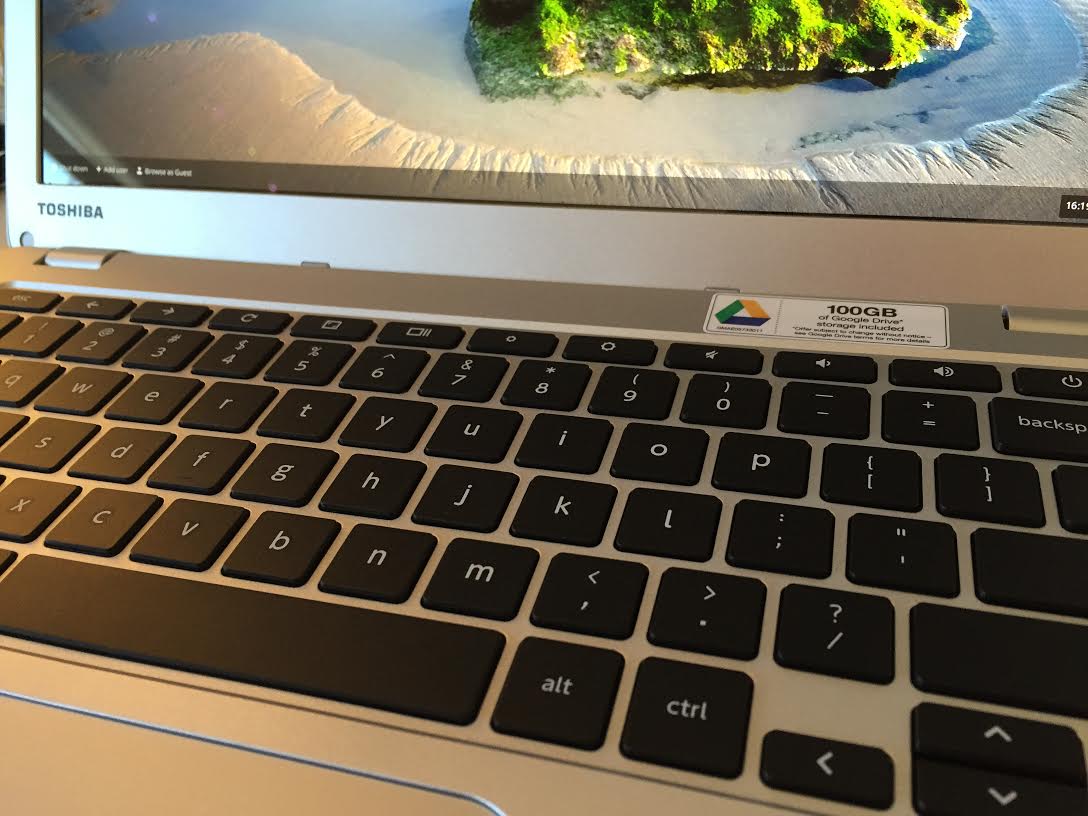
I sold my MacBook Pro and bought a Chromebook
Yesterday afternoon, a San Diego State University student bought my MacBook Pro—13-inch Retina Display, 8GB RAM, 512GB SSD—for $1,100. I purchased the laptop from local dealer DC Computers in late-August 2014 for a few hundred dollars more. The buyer's interest was my own: Mac, large SSD, and extended warranty (expires April 2017).
The proceeds go to buying Toshiba Chromebook 2 (two, another for my wife) and Android phone for her. She moves from iPad Air, which has been, since September 2014, her PC—and that experience should be another story (be patient). If time travel was possible, I would keep, rather than sell, my Chromebook Pixel early last summer. The Chromie lifestyle suits me best, and I am excited to be back to it. However, in December, when reviewing the tech products that changed my digital lifestyle last year, including the switch to Apple's platforms: "I can’t imagine using anything else". I lied to myself, and unintentionally to you.
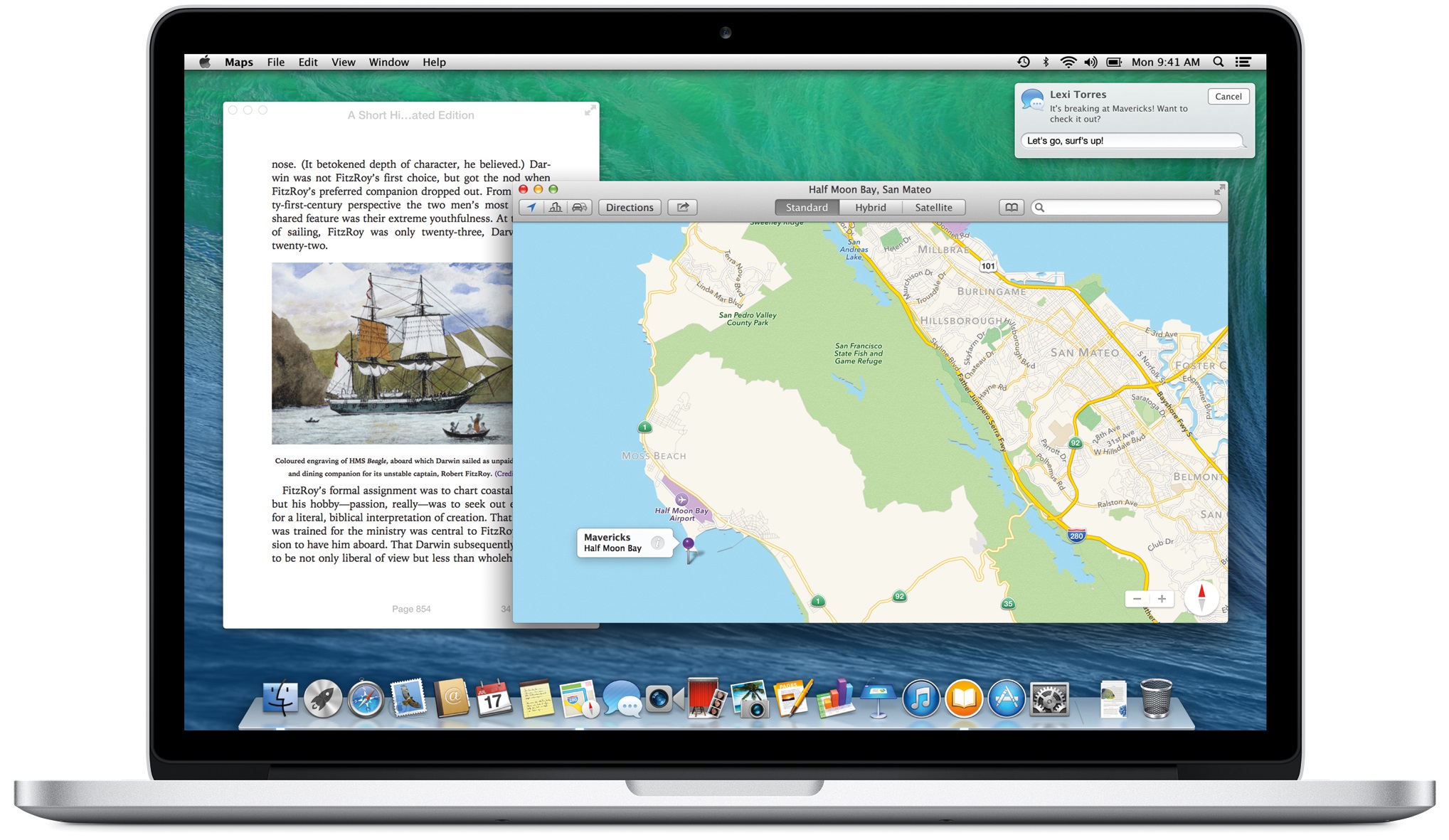
Apple launches faster MacBook Pro with Retina display lineup
Apple has updated its MacBook Pro with Retina display lineup with faster processors across the board and more RAM in the base 13.3-inch and 15.4-inch models, that kick off at $1,299 and $1,999, respectively. The new processors are 200 MHz faster than before.
Both the entry-level and mid-range 13.3-inch Retina MacBook Pros come with a 2.6 GHz dual-core Intel Core i5 processor (with Turbo Boost up to 3.1 GHz), while the high-end model packs an even faster 2.8 GHz processor (with Turbo Boost up to 3.3 GHz). The base model gains 8 GB of RAM in the new generation, twice as much as its predecessor offered, but retains its 128 GB of internal storage.
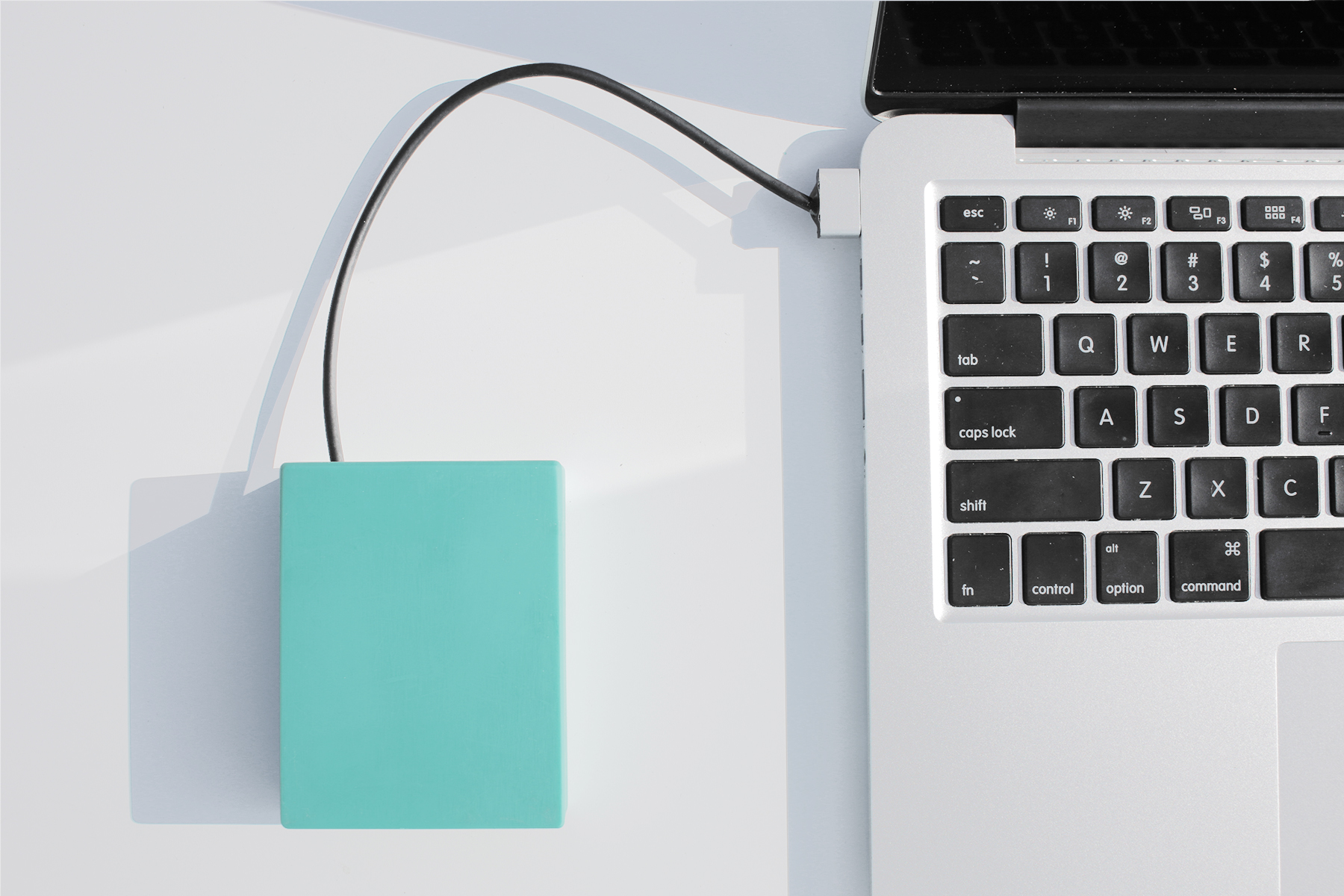
BatteryBox can charge one Apple MacBook Air or 8 iPhones in one go
Battery life continues to be the weak spot of mobile devices. Smartphones, tablets and laptops can quickly run out of juice, rendering them useless in mere hours. In places with access to the power grid the battery can be easily recharged, but that may not be the case in other locations. I often find myself in this position while traveling. Tethering makes it even worse.
Road warriors can turn to external batteries, which usually pack a decent charge, but also see a noticeable degradation in performance over time. BatteryBox is a new entry in this market that is touted to keep power-hungry devices running for many hours in one go, while never losing capacity.
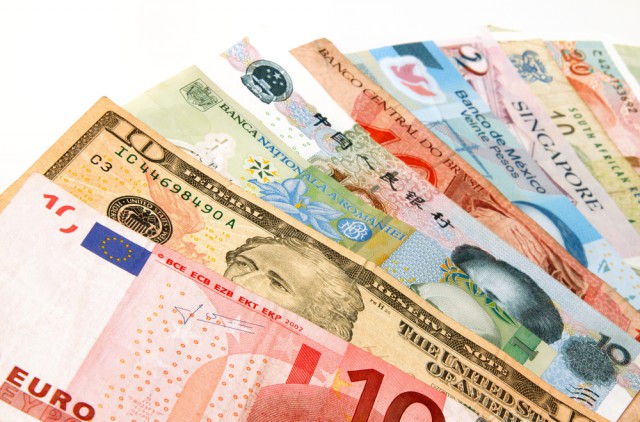
Apple Q2 2013 by the numbers: $43.6B revenue, $10.06 EPS
Today's closing bell brings answer to a question oft-asked over the past two weeks: "Will Apple profits fall for the first time in about a decade?" Not since 2003, when the fruit-logo company recovered from economic woes that sapped global PC shipments everywhere, has profit receded. Now we know.
For fiscal Q2, Apple reported $43.6 billion revenue and net profits of $9.5 billion, or $10.06 a share. Gross margin: 37.5 percent. A year earlier, the company reported revenue of $39.2 billion and $11.6 billion net quarterly profit, or $12.30 per share.
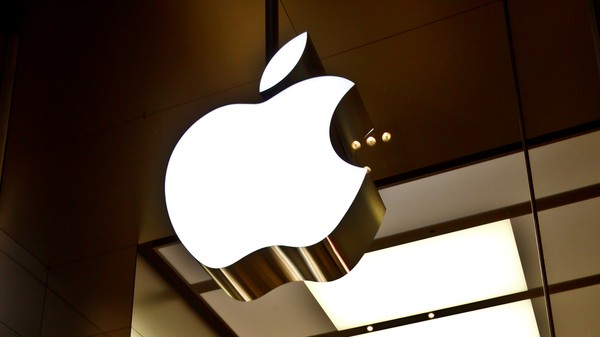
Six ways Apple could correct its enterprise blunders
Second in a series. Out of fairness, I follow up my long analysis "The enterprise will never embrace Apple" with some advice for the company. There's room in the enterprise if only Apple made more effect. None of these suggestions is outside the reach of CEO Tim Cook and the core leadership.
Perhaps Apple stays out of the enterprise game because the top brass knows that they have little expertise in the general directions that big business is heading. Their lack of desire (or capability) for true Active Directory integration, for example, is already public knowledge. When it comes to virtualization and the move to virtual desktops, Apple has no public strategy for allowing (or supporting) such an infrastructure on OS X devices, at least first party. To put it plainly, Apple's overall game plan for cozying up to the wants of enterprise is nearly nonexistent.
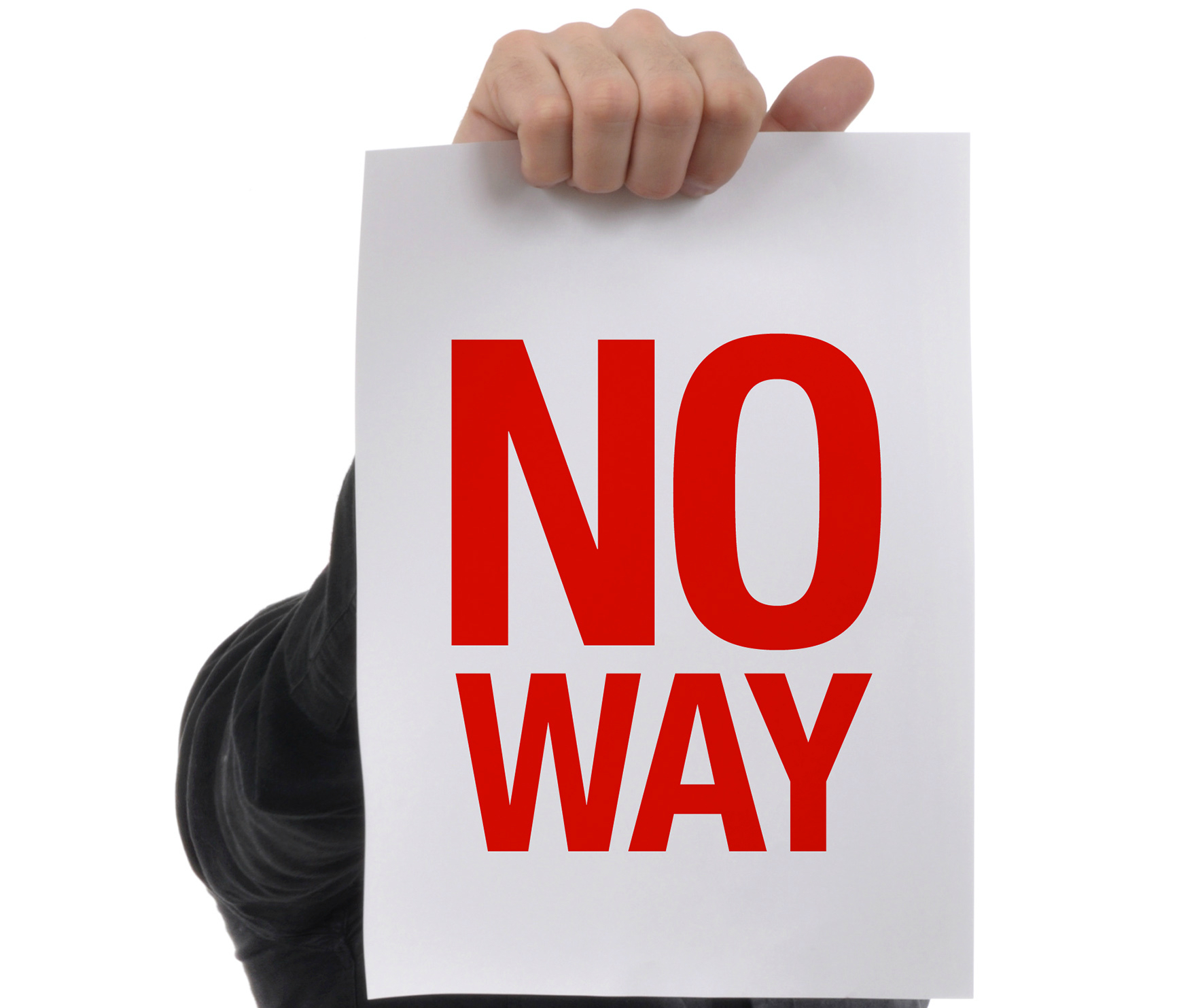
The enterprise will never embrace Apple
First in a series. If there is one company that clearly doesn't care about the corporate world, it is Apple. As iOS continues to forge flagship status as Apple's core offering, OS X gets second-class-citizen treatment in every possible way from the Cupertino, Calif.-based company. While the enterprise reluctantly builds out BYOD (bring your own device) initiatives to support usage of Apple devices at the workplace, this is a far stretch from openly embracing iOS or OS X as viable corporate platforms. Apple's presence in the boardroom is due to bottom-up organic acceptance as opposed to top-down purposeful planning.
By even conservative estimates, the enterprise IT market is massive, and growing steadily as the recession continues to recede. IDC recently pinned US corporate IT spending for 2013 at $474 billion, a 6 percent increase over the previous year. And globally, Gartner says that this figure is closer to $2.679 trillion, which represents a 2.5 percent year over year bump. Yet while Apple's sales in phones and tablets continues to stay consistently solid, the company's attitude towards enterprise hasn't changed one bit. For lack of a better description, top Apple executives just "don't care".
Will you buy Google Chromebook Pixel?
That sound you just heard was Google slapping Apple across the face. Today the search and information giant unveiled and starting selling high-end portable Chromebook Pixel. By just about every measure, Google guns for Apple in its dominant market -- premium PCs, or those selling for $1,000 or more. When rumors circulated about the computer, I opined: "Chromebook Pixel looks like MacBook Pro to me". The impression is stronger now that the real deal is here -- from form factor to price, either $1,299 or $1,449.
Should Apple sweat about Chromebook Pixel? I would. Following a years-long retail trend, Apple share of PCs selling for $1,000 or more was over 90 percent in 2012, according to NPD. Stephen Baker, NPD's vice president of industry analysis, asks if Google is "more trying to compete with Apple and high-end windows machines for premium consumer and maybe corporate?" I answer: Yes. What I want to know: Will you buy Chromebook Pixel? But more importantly: Would you buy Chromebook Pixel instead of 13-inch MacBook Pro?
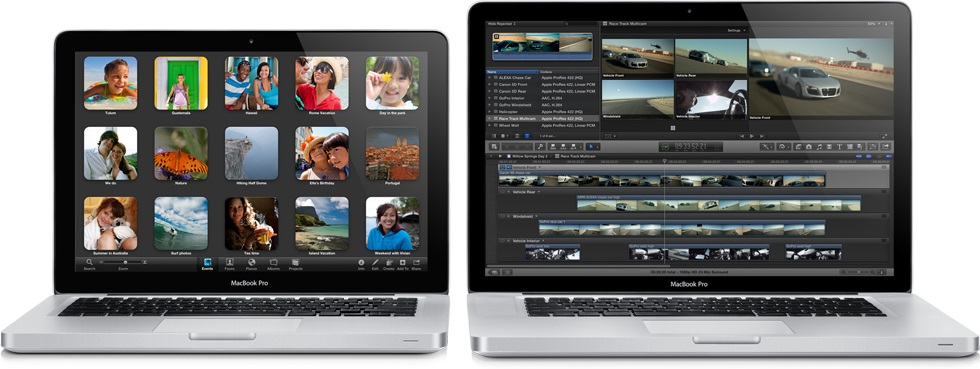
Apple lowers laptop prices, beefs up specs
Today, Apple announced a number of changes in the pricing and hardware department for the company's MacBook laptop lineup. The Mountain View, Calif.-based corporation lowered the price for the 13-inch MacBook Pro with Retina display and for the top-of-the line 13-inch MacBook Air and beefed up the specs for the 15-inch MacBook Pro with Retina display.
If you were holding off on buying an Apple MacBook now is a good time to reconsider. The fruit-logo company slashed $200 from the price of the 13-inch MacBook Pro with Retina display, which now starts at $1,499 and $1,699 for the base and top model, respectively. Apple applied a similar treatment to the 13-inch MacBook Air in 256GB trim, which now goes for $1,399, $100 less than before.

What's rotting Apple?
I'm not an investor or financial analyst. But I do have a measure of commonsense. Lots of people are asking about Apple's falling stock price and why it is. You don't need a MBA or ponder price-earnings ratios to, by commonsense, see what's happening. Apple is undergoing a long-overdue course correction. It's the new normal, baby, get used to it.
Analysts making wild-eyed predictions just months ago about $1,000 a share or bloggers banging keyboards about $1 billion market capitalization are nutty fruitcakes. Apple cofounder Steve Jobs is gone, so they made their own Kool-Aid and spiked it. They're the only thing getting high here. Apple is laid low.
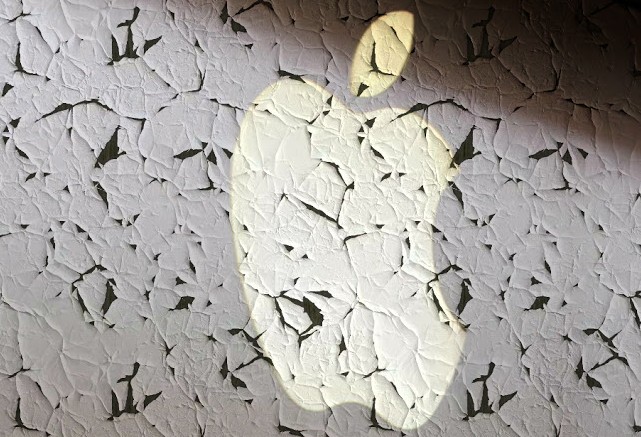
Will 2013 be another year of Apple iteration masquerading as innovation?
Apple ended 2012, Tim Cook's first full year as CEO, with a whimper. Analyst, blogger, reporter and social commentator puppy-love adoration gave way to persistent angst-questions about what's next and why the stock, which soared in September, soured through most of fourth quarter. Shares closed at $549.03, 22 percent down from the 52-week high. I can only describe 2012 as Apple's year of iteration and wonder where will be innovation this year. After all, the bitten-fruit logo company has a reputation to live up to.
By the financials, the Cupertino, Calif.-based company is the golden child. Starting in 2010, money poured in faster than the US Mint could print greenbacks. Apple takes in more cash than any other tech company ($156.51 billion during fiscal 2012), commands the largest market cap ($516.47 billion) and sits on a cash horde of at least $120 billion. But these capital gains come from past strategic investments, lucky timing (transition to the so-called post-PC era) and brilliant brand revival marketing and product execution. For the long haul, I predict that 2012 will be remembered as the year Apple stumbled -- as companies often do at the height of success -- and in this case following the tragic loss of its visionary cofounder.
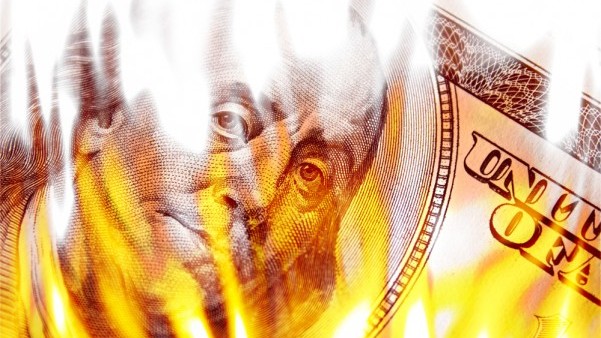
Apple's perception problem is HUGE
For more than a decade I've quipped: "In business perception is everything". For some brands, this axiom is truer than for others. Apple leads the list, much to its determent. For more than a month now, I've read speculative stories from all quarters trying to figure out why the company's stock tailspins. Some people blame the fiscal cliff, others taxes. Meanwhile, the anti-Apple crowd delights in rumors iPhone sales are slowing and the mini cannibalizes iPad 4 sales. There's an aura of doom that I can only describe as the anti-reality distortion field.
Earlier today, Apple shares briefly dipped below $500, a low not seen since around Valentine's Day. Bloggers are beside themselves posting about this catastrophe -- or so they see it. I laugh, because they are a large part of the company's falling stock price problem. All these stories contribute to negative perceptions that feed the frenzy. That's one part of the answer to how someone nicked an artery and Apple bled about $200 per share, or 27 percent decline, from September's $705.07 record high. These bloggers were, and still are, detached from reality -- like analysts covering the company. Just two months ago, the Apple Fan Club gloated about projections of $1,000 a share. Now they run around like street people holding signs "The World Ends Dec. 21!" as shares slip and analyst cut back projections.
